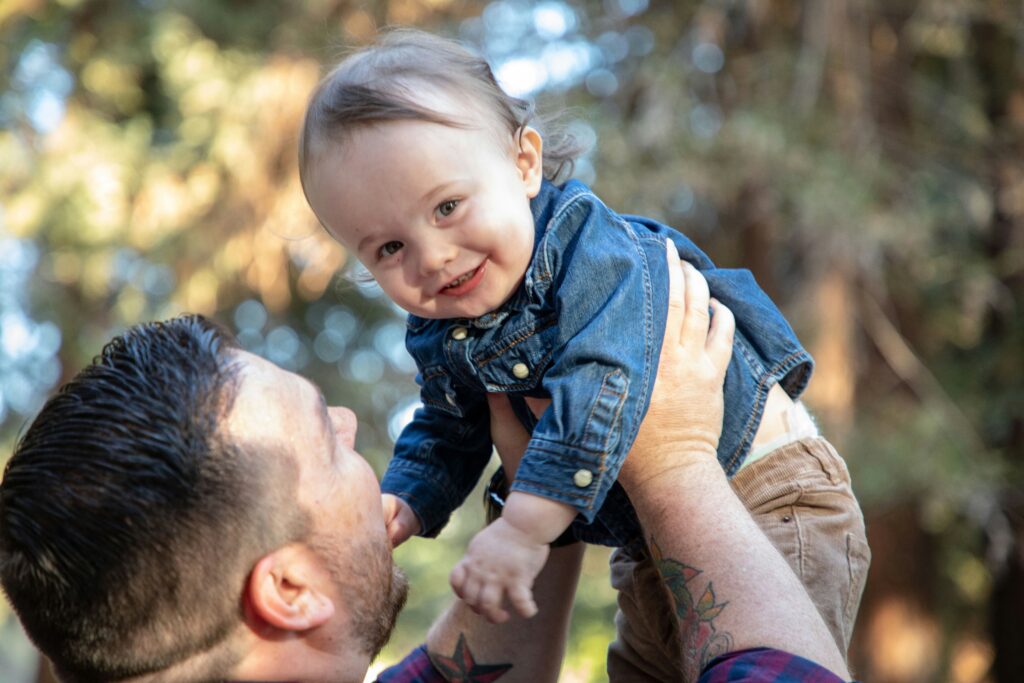Becoming the father you’ve always wanted to be while navigating recovery requires courage, patience, and unwavering commitment to both sobriety and your children. The journey of fatherhood in recovery is uniquely challenging, as it demands rebuilding trust, managing guilt, and learning to parent without substances while creating meaningful connections with your kids. However, countless fathers have transformed their lives through recovery, discovering that sobriety doesn’t just make them better men—it makes them the present, loving, and reliable dads their children deserve. Recovery offers fathers the opportunity to break generational cycles, model healthy behaviors, and build the strong, authentic relationships that were impossible during active addiction.
Understanding the Unique Challenges of Being a Dad in Recovery
The Emotional Weight of Past Mistakes
Recovery brings clarity, and with that clarity often comes overwhelming guilt about the impact addiction had on your children. Those in recovery often feel guilty and ashamed of their past actions, especially how addiction affected their children. This emotional burden can feel paralyzing, but it’s important to understand that guilt can either destroy or motivate—the choice is yours.
Many fathers in recovery struggle with questions like:
- How do I explain my absence during their important moments?
- Can my children ever truly forgive me?
- What if I’ve already caused irreparable damage?
These concerns are valid, but dwelling on them without action only perpetuates the cycle of shame that addiction thrives on.
Balancing Self-Care and Parenting Responsibilities
When in recovery, parents need to balance their self-care and caring for their kids. This balance is crucial because neglecting your recovery puts your entire family at risk of relapse. Yet many fathers feel selfish for attending meetings, therapy sessions, or taking time for self-reflection when they could be with their children.
The reality is that self-care in recovery isn’t selfish—it’s essential parenting. Your sobriety is the foundation upon which healthy fatherhood is built.
How Does Addiction Impact Fatherhood?
Addiction doesn’t just affect the person using substances; it impacts every aspect of family life. Children can experience loneliness, depression, anxiety, guilt, anger issues, and an inability to trust when living with a parent struggling with addiction.
Common Effects on Children Include:
- Emotional instability: Children may develop coping mechanisms that aren’t healthy
- Trust issues: Broken promises and inconsistent behavior create lasting trust problems
- Role reversal: Children may take on adult responsibilities to compensate
- Academic and social problems: Stress at home affects performance in other areas
- Increased risk: Children of addicted parents have higher rates of developing substance use disorders themselves
Understanding these impacts isn’t meant to increase your shame—it’s meant to motivate your commitment to recovery and healthy parenting moving forward.
What Are the Benefits of Getting Sober as a Father?
Present and Engaged Parenting
Sobriety allows you to be truly present with your children. No longer clouded by substances, you can:
- Listen actively to their concerns
- Participate meaningfully in their activities
- Create genuine memories together
- Respond appropriately to their emotional needs
Breaking Generational Cycles
All transformations require courage and humility. But that’s especially true for dads who are struggling with addiction. By choosing recovery, you’re not just changing your life—you’re potentially changing the trajectory of your family’s future for generations to come.
Modeling Healthy Coping Strategies
Children learn more from what they observe than what they’re told. In recovery, you demonstrate:
- How to face problems head-on
- The importance of seeking help when needed
- That making mistakes doesn’t define you
- How to build supportive relationships
Building Trust and Repairing Relationships
Start with Consistent Actions
Trust isn’t rebuilt through words alone—it requires consistent, reliable actions over time. Small, daily commitments that you keep are more valuable than grand gestures you can’t maintain.
Practical trust-building steps:
- Show up when you say you will
- Follow through on promises, no matter how small
- Be honest about your struggles and progress
- Maintain consistent routines your children can depend on
Acknowledge Past Harm Without Over-Explaining
Children need acknowledgment of how addiction affected them, but they don’t need detailed explanations about adult issues. Age-appropriate honesty is key:
- For young children: “Daddy was sick and couldn’t take good care of you, but I’m better now and learning to be the dad you deserve.”
- For older children: “I know my drinking/using hurt our family. I’m working hard in recovery to be the father you need.”
Create New Positive Experiences
Instead of holding onto guilt, focus on making positive memories with your children today. Every sober moment is a chance to rebuild trust and strengthen your relationship. Focus on creating new, positive experiences rather than trying to make up for lost time.
Can You Be a Good Father While in Early Recovery?
Yes, but it requires intentional effort and support. Early recovery presents unique challenges:
Common Early Recovery Parenting Challenges:
ChallengeSolutionEmotional volatilityDevelop healthy coping strategies through therapyPhysical exhaustionPrioritize sleep and nutritionOverwhelming guiltFocus on present actions rather than past mistakesLimited patiencePractice mindfulness and take breaks when neededFinancial stressSeek community resources and support programs
Strategies for Success in Early Recovery:
- Maintain your recovery routine: Your sobriety must come first for everyone’s benefit
- Seek family therapy: Professional guidance helps navigate complex family dynamics
- Build a support network: Connect with other fathers in recovery
- Practice patience: Healing takes time for both you and your children
- Celebrate small wins: Acknowledge progress, no matter how minor it seems
How Do You Handle Parenting Stress Without Substances?
Develop Healthy Coping Mechanisms
Recovery means learning new ways to handle stress, frustration, and overwhelming emotions:
Immediate stress relief techniques:
- Deep breathing exercises
- Brief meditation or prayer
- Physical activity (walk, pushups, stretching)
- Calling a sponsor or supportive friend
- Journaling about feelings
Long-term stress management:
- Regular exercise routine
- Consistent sleep schedule
- Healthy eating habits
- Ongoing therapy or counseling
- Participation in support groups
Create a Parenting Action Plan
Having a plan for difficult moments prevents impulsive reactions:
- Recognize triggers: Identify situations that typically cause stress
- Have exit strategies: Know when to take a break from parenting
- Build support systems: Have people you can call for help
- Practice responses: Rehearse how you’ll handle challenging behaviors
Supporting Your Children’s Healing Process
Age-Appropriate Communication
Different ages require different approaches to discussing addiction and recovery:
Preschoolers (3-5 years):
- Simple explanations about being sick and getting better
- Focus on current safety and routine
- Lots of physical affection and reassurance
School age (6-12 years):
- Basic education about addiction as a disease
- Emphasis on it not being their fault
- Involvement in family recovery activities
Teenagers (13+ years):
- More detailed discussions about addiction and recovery
- Acknowledgment of their specific experiences and feelings
- Support for their own healing journey
Professional Support for Children
Consider professional help for your children if they show signs of trauma or struggle with your recovery:
- Individual therapy for processing complex emotions
- Family therapy to improve communication
- Support groups for children of addicted parents
- Educational support if academic performance has suffered
What Role Does Family Play in Your Recovery?
Family as Motivation
Many fathers cite their children as primary motivation for getting and staying sober. List said, “I had a tool kit, and I was well equipped to handle the massive amount of feelings I was having” when he found out he was going to be a father, even with 18 years of recovery behind him.
Family as Accountability
Your children, partner, and extended family can serve as accountability partners when you’re transparent about your recovery:
- Regular family meetings about recovery progress
- Involvement of trusted family members in your support network
- Open communication about challenges and successes
- Family participation in recovery-related activities
Protecting Family from Recovery Stress
While family involvement is beneficial, it’s important to:
- Avoid making children feel responsible for your sobriety
- Keep adult recovery issues from burdening children inappropriately
- Maintain boundaries around recovery-related stress
- Ensure children have their own support systems
Practical Daily Strategies for Fathers in Recovery
Morning Routines That Set You Up for Success
Starting each day with intention helps maintain both sobriety and effective parenting:
Sample morning routine:
- Wake up 30 minutes before children
- Brief meditation or prayer
- Review daily goals and priorities
- Prepare for potential challenges
- Express gratitude for sobriety and family
Evening Reflection and Planning
End each day by:
- Reflecting on parenting successes and challenges
- Planning for tomorrow’s activities
- Practicing gratitude with your children
- Maintaining recovery-focused activities (reading, journaling, calling sponsor)
Creating Structure That Benefits Everyone
Children thrive on routine, and structure supports recovery:
Weekly structure elements:
- Consistent meal times and bedtimes
- Regular family activities and outings
- Scheduled one-on-one time with each child
- Involvement in children’s school and extracurricular activities
- Family participation in community or service activities
Long-Term Success: Maintaining Recovery While Raising Children
Evolving Your Recovery as Children Grow
Your recovery needs will change as your children age and present new challenges:
Ongoing considerations:
- How to discuss your addiction history as children mature
- Navigating teenage experimentation with substances
- Modeling healthy relationship behaviors
- Continuing education about addiction and recovery
- Staying involved in recovery community long-term
Building a Legacy of Recovery
Successful fatherhood in recovery isn’t just about not using substances—it’s about:
- Demonstrating resilience and personal growth
- Teaching children healthy coping mechanisms
- Breaking cycles of dysfunction
- Creating family traditions around sobriety
- Contributing to your community’s recovery efforts
Finding Support and Professional Help
Types of Support Every Father in Recovery Needs
Professional support:
- Individual addiction counseling
- Family therapy
- Parenting classes specific to recovery
- Medical care for any co-occurring mental health issues
Peer support:
- 12-step programs or other recovery fellowships
- Father-specific recovery groups
- Online communities for parents in recovery
- Mentorship relationships with other sober fathers
Family support:
- Partner’s involvement in recovery process
- Extended family education about addiction
- Children’s therapy or support groups
- Family recovery programs
When to Seek Additional Help
Don’t hesitate to seek professional help if you experience:
- Thoughts of using substances
- Overwhelming anger or resentment toward children
- Inability to manage daily parenting tasks
- Signs of depression or anxiety
- Relationship problems that threaten your recovery
Frequently Asked Questions About Fatherhood in Recovery
How do I explain my addiction to my young children?
Keep explanations simple and age-appropriate. Focus on the fact that you were sick, you’re getting better, and it wasn’t their fault. Avoid adult details about addiction while still being honest about the impact on your family.
What if my children don’t trust me or want to spend time with me?
Trust rebuilding takes time. Focus on consistent, reliable actions rather than trying to rush the process. Professional family therapy can help navigate these challenging dynamics and provide neutral ground for rebuilding relationships.
Can I attend recovery meetings if I have custody of my children?
Many recovery communities offer childcare during meetings, and some have family-friendly meeting formats. Online meetings can also provide flexibility. Remember that attending meetings is essential self-care that ultimately benefits your children.
How do I handle my children’s questions about why I can’t drink like other parents?
Explain that alcohol is not safe for you because of your disease of addiction. Emphasize that this is about keeping yourself and your family healthy and safe. Many children are remarkably understanding when given honest, age-appropriate explanations.
How Sober Living Supports Fathers in Recovery
For many fathers beginning their recovery journey, transitional housing provides the structure and support needed to rebuild their lives while preparing to reunify with their families or establish healthy parenting relationships.
At Elevate Recovery Homes, we understand the unique challenges that fathers face in early recovery. Our goal is to provide comprehensive post-treatment care to men suffering from substance use disorder. We understand the road to recovery is challenging, that’s why our Colorado sober living homes offer transitional living in a supportive and structured environment.
Our philosophy centers on four essential principles that directly support fathers in recovery:
Structure: We provide a structured environment that allows individuals to focus on their goals and create a consistent daily routine supporting their recovery journey. This structure is invaluable for fathers learning to balance recovery with parenting responsibilities.
Accountability: We hold our members accountable for their actions and encourage them to take responsibility for their own recovery. This accountability extends to helping fathers develop responsible parenting skills.
Support: We offer a supportive community of like-minded individuals working toward similar goals. Many of our residents are fathers working to rebuild relationships with their children, providing peer support and understanding.
Action: We encourage our members to take action toward their recovery, whether it be through therapy, support groups, or other resources. This includes accessing parenting resources, family therapy, and legal support when needed.
Our staff includes experienced professionals who understand the complex intersection of addiction and fatherhood. We provide the tools, resources, and support necessary for fathers to build the foundation for successful long-term recovery while working toward healthy relationships with their children.
If you’re a father struggling with addiction, remember that seeking help is not a sign of weakness—it’s the strongest thing you can do for yourself and your family. Recovery is possible, and with the right support, you can become the father you’ve always wanted to be.
Recovery is a journey, and fatherhood in recovery is a unique path that requires courage, commitment, and community support. While the challenges are real, the rewards of sober fatherhood—authentic connections with your children, the ability to be present and reliable, and the opportunity to break generational cycles—make every day of sobriety worthwhile. Your children don’t need a perfect father; they need a sober, present, and loving one. That father exists within you, waiting to emerge through the gift of recovery.






